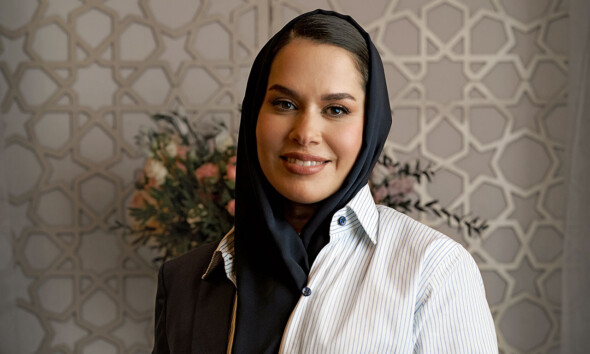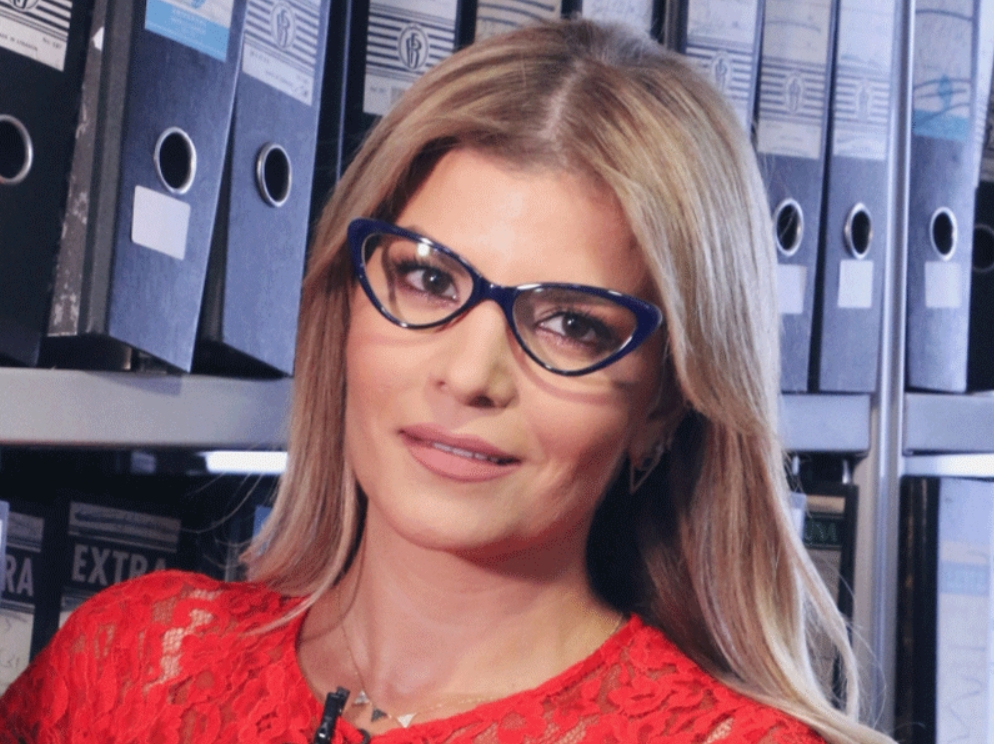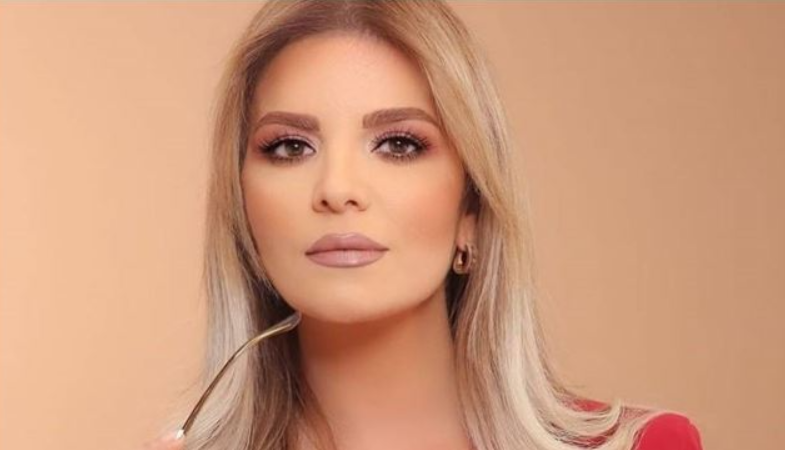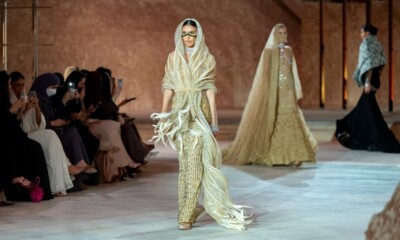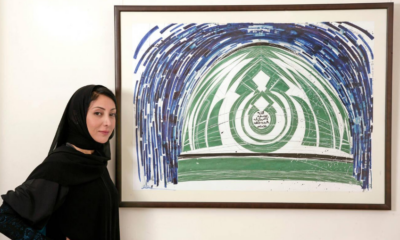Home » Interviews » Nisrine Zawahra: The Truthful Arab Media Figure has had Her Wings Clipped, and Objectivity is a Difficult Concept to Grasp!
Interviews
Nisrine Zawahra: The Truthful Arab Media Figure has had Her Wings Clipped, and Objectivity is a Difficult Concept to Grasp!
Published
4 months agoon
By
Huda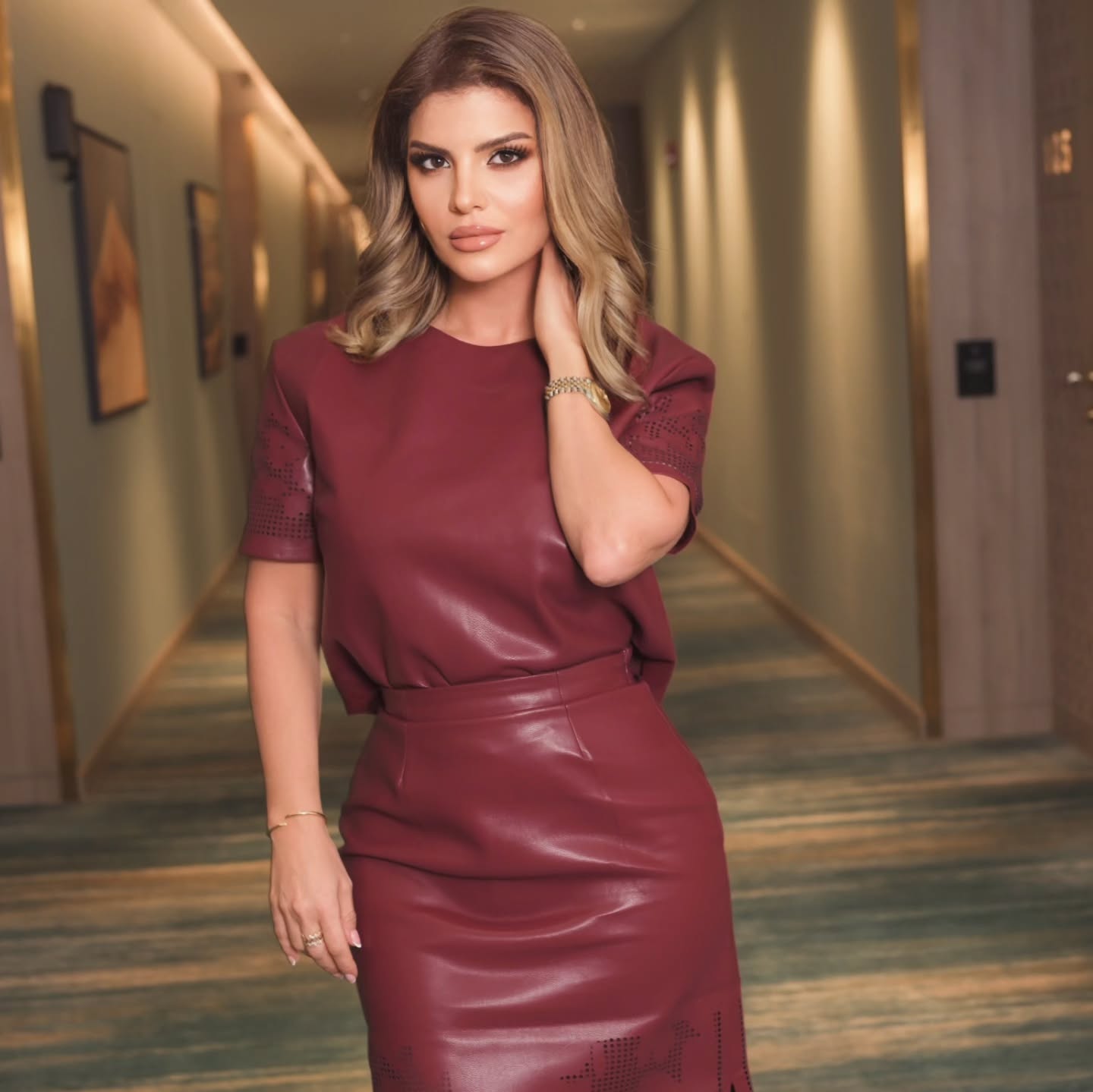
She is tactful and methodical in her judgement, and courageous in offering constructive criticism without offending anybody.
Professionalism is her top priority, and she values credibility with the receiver more than she does trying to win over superstars and celebrities.
How could she not, considering she has worked at several stations that have given her extensive media and human experience and mature beliefs about the need to express the human conscience above all other demands of journalistic scoop and interest?
Interviewed by: Mohsen Hassan
All of these beliefs stem from her view that the foundation of a media figure’s integrity is his impartiality and objectivity and her concern for privacy and security above her desire to cause harm and stir up controversies.
Nisrine Zawahra is a Lebanese media personality who has confidently jumped to fame. She began her career as a journalist by working for the Lebanese newspaper An-Nahar, then Sawt Lebanon radio, then her program (Felfel), which An-Nahar website released and broadcasted online, and finally her program (Ala Bakla), which she presented on the screen of Al-Jadeed TV.
She is eager to demonstrate a range of creative and inventive optimism to Lebanese women since she is a sophisticated and ambitious individual who is constantly looking for new and different ways to contribute to her area.
Nevertheless, she is still concerned about Lebanon’s crises and the suffering of its people from wars and conflicts.
This conversation occurred when Arabisk London got in touch with Nisrine Zawahra about her excursions and tours between Jeddah and Riyadh in the Kingdom of Saudi Arabia.
How do you, Nisrine Zawahra, see the current situation in Lebanon? And what is your duty as a media professional in this context?
In my role as a media professional, I am more interested in cultural and artistic matters than political ones. However, as a Lebanese citizen, the events in Lebanon grieved me, and they still do, I hope that this conflict will be the final tragedy that our people experience, who have endured a great deal of hardship and adversity.
For us to dream, plan, and consider a better future, I believe it is time for Lebanon and all Lebanese to live with it in the form of stability and security. For this reason, I continue to speak out on behalf of this position on the humanitarian, social, and national levels in general.
An-Nahar newspaper, Sawt Lebanon radio, and finally the small-screen world. What values and standards about people and the media have you picked up?
Naturally, this was a seventeen-year journey that was both long and short at the same time, so it flew by me like a flash of lightning. However, when I take the time to reflect on this journey, I discover that I have accomplished a lot and overcome many obstacles.
I still think of myself as a beginner, of course, so I have a lot of goals, ideas, and aspirations that I hope to accomplish both now and in the future.
Regarding the values and standards, I have gained, the most crucial one is to always remember my humanity and morals when practising my media and professional work, as well as in all of my roles and interactions with other people. In this case, human standards take precedence over media and professional standards since they dictate how one should treat everyone.
Thus, in my opinion, everyone should be treated according to the same rules as those in our field; media professionals, like lawyers and judges, should act following their conscience and fear of God. I live fearlessly in the shadow of these beliefs and ideals on a personal, professional, and life level.
In Nisrine’s professional, career, and media world, what’s new? Are there any new artistic convictions in the realms of drama and film, for example?
My primary employment is media, media training, and media consultancy. I don’t enjoy working in the theatre or film industry and have no interest in doing so. Additionally, I received a role in acting, but I’m not very good at it.
I will therefore continue to work only in my field of media, especially since I do not think it is beneficial to combine multiple professional fields in a way that exhausts and divides efforts among multiple jobs, activities, and specialisations.
As a result, I always concentrate on my media work, which takes up all of my interests and demands a level of seriousness, diligence, and desire for development and modernisation that I can hardly keep up with.
Felfel and Al Bakla caused a significant change in your career. What do you, Nisrine Zawahra, now hope to compete with these two programs?
It’s true that the radio program “Felfel” catalysed the launch, which led to the television program “Al Bakla.” However, one of the most important moments in my media career was the special episode that featured a conversation with artist George Wassouf. It took three days to film and provided a realistic backdrop of the artist’s life, beginning with his initial launch in Syria. Two years ago, I represented it, and it had the same positive and well-received effect.
I co-presented another poignant, compassionate, and religious episode on LBC last year with Abed Fahed and George Khabbaz, representing two distinct cultures. It was a great episode. I never stop since these qualitative events tend to persist and have a lasting effect.
Presenting fresh and updated information that pleases followers is something I always consider. In this sense, my ambition never falters. I compete with myself, so whatever fresh I offer has to be on par with what I’ve already offered in terms of look, substance, and quality.
My current goal is to host qualitative shows featuring qualitative stars. Additionally, I want to offer a distinct media vision that aligns with my personal beliefs on the role of new media.
Your candour in criticism and assessment has led to several conflicts with celebrities. Which of these conflicts are the most well-known? And from them, what did Nisrine Zawahra learn?
Given that certain celebrities, artists, and stars cannot withstand criticism or objective evaluation, it is not surprising that these disputes were rare.
As for me, I learned criticism and its tenets from the An-Nahar newspaper, which is a Lebanese media institution. It taught me firm values for professional and media practice, and we learned not to be scared, compromise, or follow the star’s or artist’s wishes mindlessly.
And to carry out our professional and media roles as best we can, supporting and enhancing the recipient’s artistic, aesthetic, and human qualities. In the end, we are media professionals who are concerned with our professional function, even if it is not always accepted by a well-known figure. We are neither fans nor followers.
I have always remained true to myself and have never altered or strayed from my media and professional beliefs for the sake of others. I view this as a huge advantage as it encourages me to constantly portray the finest and most deserving version of myself.
Generally speaking, I am not motivated by the wants of others around me or by their admiration or distaste for what I offer. What matters to me is that I consider the media and professional conscience when presenting.
The media landscape in Saudi Arabia is expanding at an unprecedented rate. How do you feel about it? Are you considering trying out new media there?
Right now, I’m in Jeddah, Saudi Arabia, and I’ll be going to Riyadh the following month. Saudi Arabia is expanding and winning people over. It currently symbolises the harmony of Gulf, Arab, Egyptian, and Lebanese art. 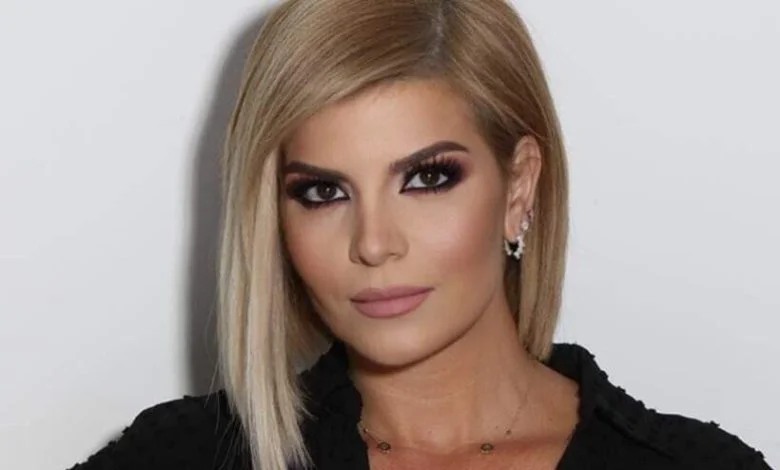
It has surpassed all expectations, to the extent that the impossible has now become a reality in our country. Considering the several complicated situations encircling the area, we are really pleased with the Kingdom’s present efforts to assist Arab artists and media workers.
For my part, I’m excited to interact favourably with this new Arab and creative area. Any media professional would benefit greatly from this Saudi media growth, and I expect to soon be in a promising environment where I can move beyond the Lebanese media framework and integrate professionally with its sister, the revitalised Saudi media.
Nisrine Zawahra is skilled at crafting TV presenter scripts. Why hasn’t this talent been cultivated and used in theatrical scriptwriting and TV directing?
Indeed, I have a lot of experience creating shows for senior media professionals, even before I made my TV debut. I occasionally work on projects with large Arab stations and programs, and at one point in the past, it occurred to me to write a dramatic script, which I am certain I can do as well as possible.
However, writing these kinds of scripts demands total dedication and intense focus away from other distractions, and because I am constantly consumed by media, I am unable to endure the prolonged patience needed for such an endeavour in writing. Consequently, this writing ability will continue to be influenced by the conditions and environment that enable me to proceed in transforming it into one of the full dramatic text.
How keen are you to help and encourage Arab and Lebanese women? What are you doing about this?
My professional and media work indicates that I am always eager to speak up, tell the truth, and follow the media work charter, which allows me to portray Lebanese and Arab women in this sector in a favourable light.
My achievements in my personal, humanitarian, and private life seem as an asset to the accomplishments of Lebanese and Arab women, as well as a promising presence in the framework of numerous community activities.
I have personally taken part in several seminars about women, their concerns, and their interests. I am always eager to attend these gatherings to support Lebanese and Arab women and to advocate for their most pressing issues so that it is possible to find the finest answers and debate them in the media.
What qualities does Nisrine Zawahra think an honest journalist should possess? Has the Arab journalist managed to break free from the prison of political servitude?
Media neutrality, professional objectivity, and consideration for human conscience are among the criteria that a journalist must fulfil to be genuine. 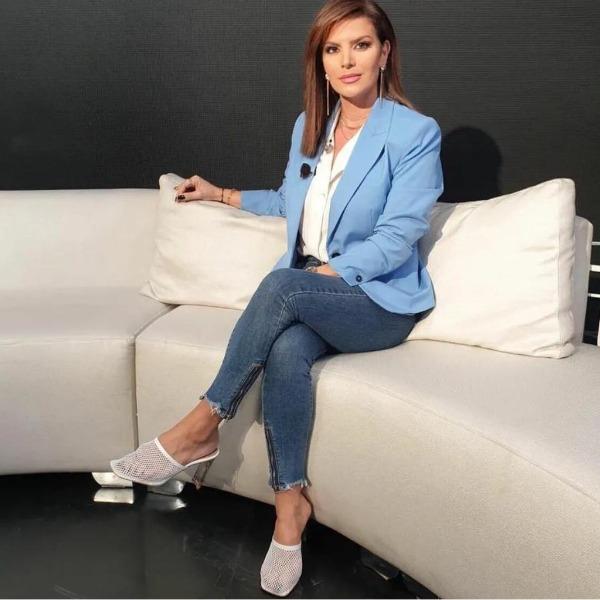
The human element of a journalist must take precedence over the propagandist element; it is unacceptable for a journalist to injure a politician, artist, or other well-known individual only to complete a media scoop. This is a breach of media integrity. Instead, integrity encompasses people in all frameworks and content.
Since most Arab media outlets are under the control of directed capitalism, which limits the freedom of the media professional and prevents him from addressing all the aspects and details that he wishes to convey and discuss with recipients and viewers, our media affiliation with certain institutions imposes on us a sort of commitment not to expand the scope and ceiling of some of the topics discussed within the political context in particular because of this.
So, in our Arab world, the honest media professional has his wings clipped for such considerations on the political affiliation of media stations.
As media professionals, we strive to balance these considerations in our presentation and analysis, avoiding any involvement in cautions that might lead to local, regional, or global issues. Ultimately, it’s not a simple calculation anyhow.
What is required of Lebanon’s citizens as a nation to restore equilibrium and stability? In this situation, how should the political media behave?
First and foremost, Lebanese citizens must reorganise the social, political, and economic framework in which they operate. Without replacing and changing the nation’s prevailing political personality pattern, this is not possible, transforming it from political old age to maturity, modernity, and contemporaneity.
This is attainable by giving political and leadership responsibilities to young, aspirational, and national groups that are capable of overcoming factional, sectarian, and interest-based differences, based on strong convictions in the value of putting the public interest of Lebanon, the motherland, ahead of private and partisan interests.
Lebanon is a nation deserving of a secure, civilised, and compassionate existence. We are fed up with pointless conflicts, financial meltdowns, and a great deal of unending misery without any genuine chance for development, advancement, or rebirth. Therefore, for us to create a successful and stable nation, I hope that parties and sects will no longer play a part in Lebanon and that loyalty will only be to the land and the motherland.
Particularly in a nation full of thirteen sects, the media plays a significant role in this situation. Perhaps the most crucial function in this situation is the need to be cautious not to exacerbate divisions, inequalities, and disputes while yet demonstrating credibility while discussing subjects and reporting news. Lebanese media outlets have often mobilised troops against other forces in Lebanon to achieve their own and other countries’ objectives.
Finally, what is the goal that Nisrine Zawahra has still to accomplish in her life?
In light of the numerous modern crises that plague life at the level of the passing moment, it is necessary to pay attention to the balance of health, mood, and physical comfort. With these two things—health and peace of mind—it is possible to continue the effort, work, self-entwicklung, and diligence in reaching the media and professional specialisation to more professional levels, presence, and distinction, as well as to move from one dream and ambition to another.
Read more: Saudi Influencer Lojain Omran Works in Real Estate Beside Media
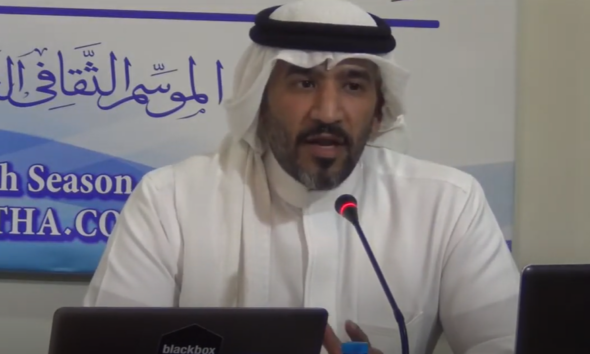
Ahmed Al-Badr the Saudi Businessman
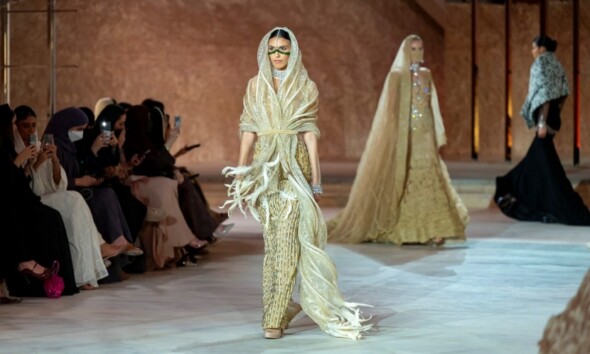
Saudi Designers Ladies’ Role in the Fashion Revival & Vision 2030
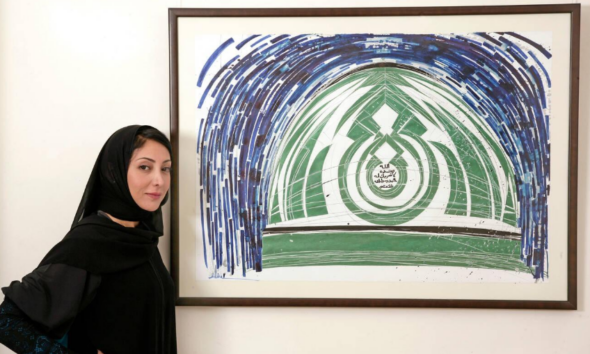
Lina Gazzaz: A Saudi Artist Who Painted History in Modern Colours!
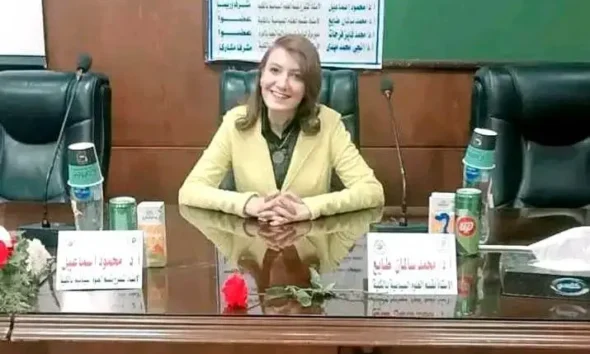
Terrorism Specialist Dr. Shimaa Samir: Multipolarity is Undermining Nuclear Deterrence, and it is Possible to Tame Extremist Ideology!
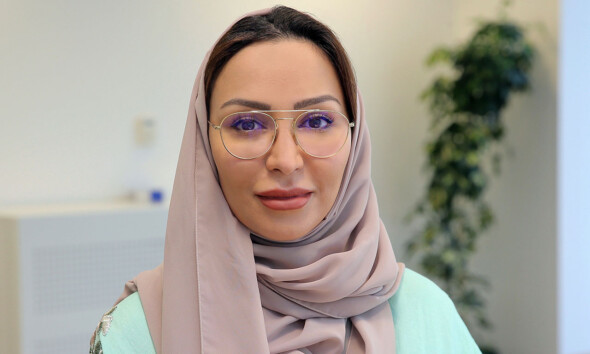
Daniah Orkoubi: A Saudi Entrepreneur and Technological Pioneer
